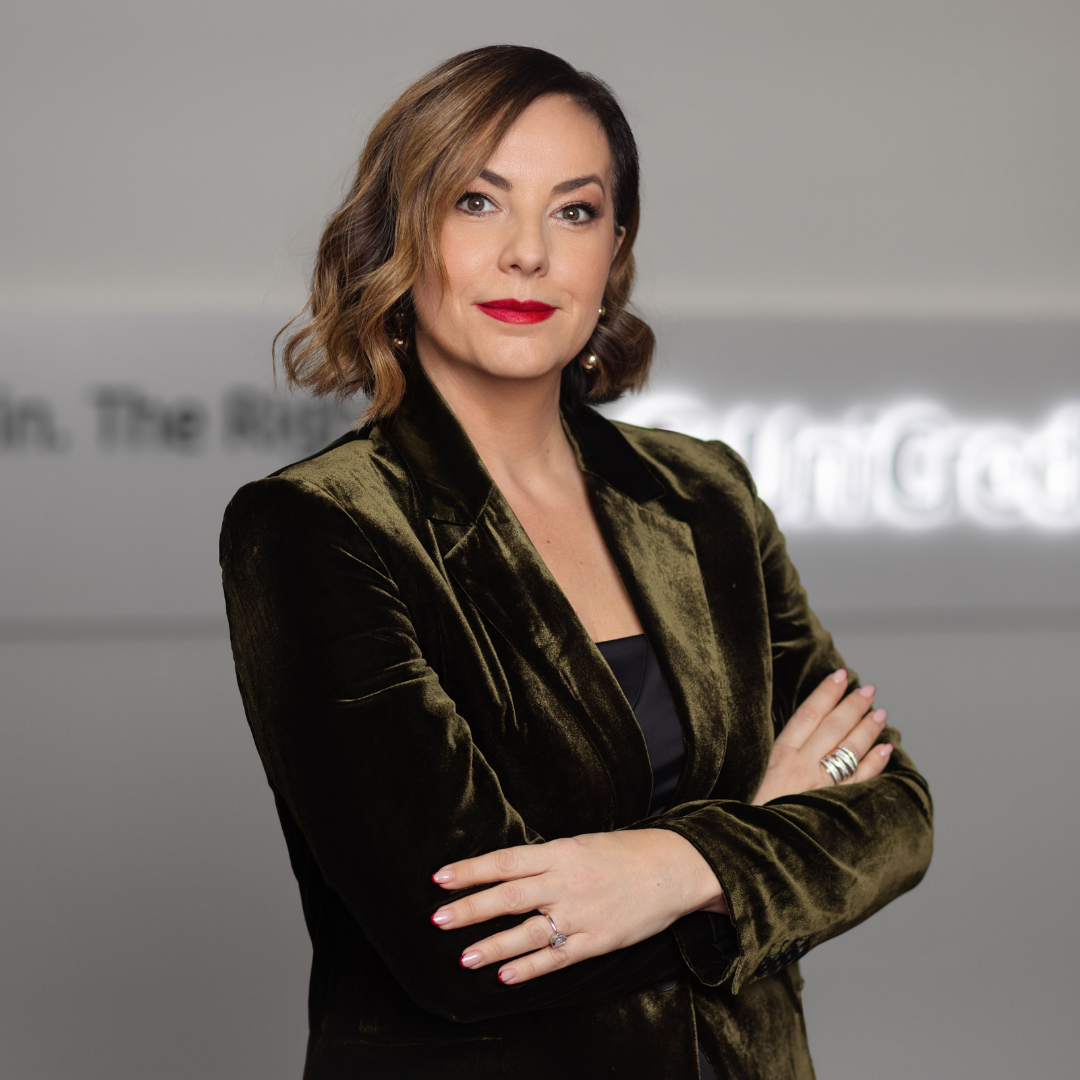In a rapidly changing world, leaders are not just decision makers – they set the tone for the culture of their organizations, shape values and give young people the space to grow. In an interview with Leader Roots, Amina Mahmutović, President of the Management Board of UniCredit Bank d.d. Mostar, shares her thoughts on the role of leaders in creating a psychologically safe work environment, the importance of intergenerational understanding and how UniCredit Bank supports young people in their professional development.
In your statement, you highlighted how important investing in young people’s knowledge is for the development of society. What specific practices and approaches within UniCredit Bank enable young employees to grow and take on leadership roles?
At UniCredit Bank, we believe that young people are the drivers of innovation and the key to long-term success. That is why we systematically work to create an environment in which young employees have the opportunity to learn, grow and develop into the leaders of the future. Our talent development programs include structured education, mentoring, experience across different business functions and involvement in strategic projects. Through programs such as Mini MBA for students, intensive summer internships and development academies for young professionals, we provide concrete tools and experiences that enable them to recognize their potential, take responsibility and actively contribute to business development.
As the leader of a large organization, you are in daily contact with different generations of employees. How do you find a common language and what do you advise your teams when they face generational differences in approach to work and values?
We see generational differences as an asset, not an obstacle. Each generation brings a unique perspective – from experience and stability to freshness and digital agility. The key is open communication and mutual respect. We advise teams to always start from curiosity instead of assumptions – to try to understand the “why” behind every attitude or behavior. By encouraging dialogue, working together on projects and promoting a culture where all voices are heard equally, we build bridges between generations and learn from each other.
In a culture that fosters psychological safety, leaders play a key role. How do you personally build trust within your team and what qualities in a leader do you consider crucial for creating a safe and supportive work environment?
Trust is built through consistency, transparency and genuine interest in people. I try to be present and available - not only in a professional sense, but also as a person who listens, understands and learns. I believe that a leader must show vulnerability when necessary, admit a mistake and openly ask for the opinions of the team. The qualities that I consider key to creating a safe environment are empathy and caring, but equally important are integrity and the ability to really hear what people are saying, and even what they are not saying directly.
At a time when young people are looking for meaning and purpose in their work, how does UniCredit Bank adapt to those expectations and ensure that work in large systems does not lose its humanity and authenticity?
Today's young people rightly expect more from the workplace – they are looking for purpose, opportunity to contribute and authenticity. At UniCredit Bank, we have recognized this and are actively working to ensure that our business model includes not only financial goals, but also wider social responsibility. Through volunteering, projects that contribute to the community, as well as through the involvement of employees in decision-making processes, we create a space where every individual can feel valued and seen. Large systems can be very human, when leaders approach them with empathy and clarity of purpose.
What, in your opinion, is the biggest challenge for young people today when they enter the business world - and how can we further empower them not to give up their potential within the corporate environment?
The biggest challenge for young people today is the balance between the desire for quick success and the actual learning process, which requires time, patience and resilience. In a world where information and successes are often instantly visible, it's easy to feel inadequate if success doesn't come right away. Our task in corporations is to give them realistic but supportive messages - that success is not a sprint, but a marathon. We need to empower them through mentorship, trust and opportunities that are challenging but achievable. And most importantly, we must listen to them and show that their ideas are valid.
If you could give only one message to young people at the beginning of their career, the one that meant the most to you personally - what would it be?
Don't look for the perfect path, create it. The most valuable lessons come not from preconceived plans, but from the courage to take the first step, even when you don't know exactly where it's leading. Believe in your values, stay authentic and never underestimate the power of persistence. Success is not knowing everything, but having the will to learn and not giving up on yourself.













